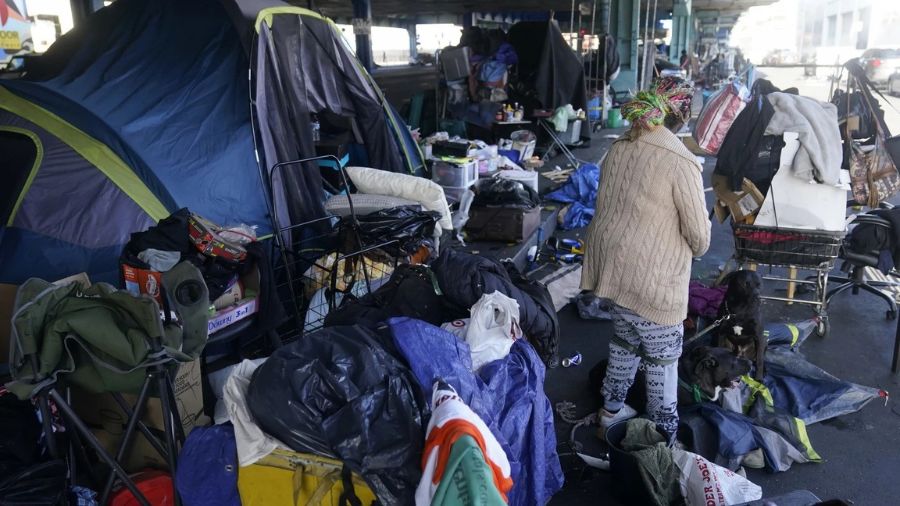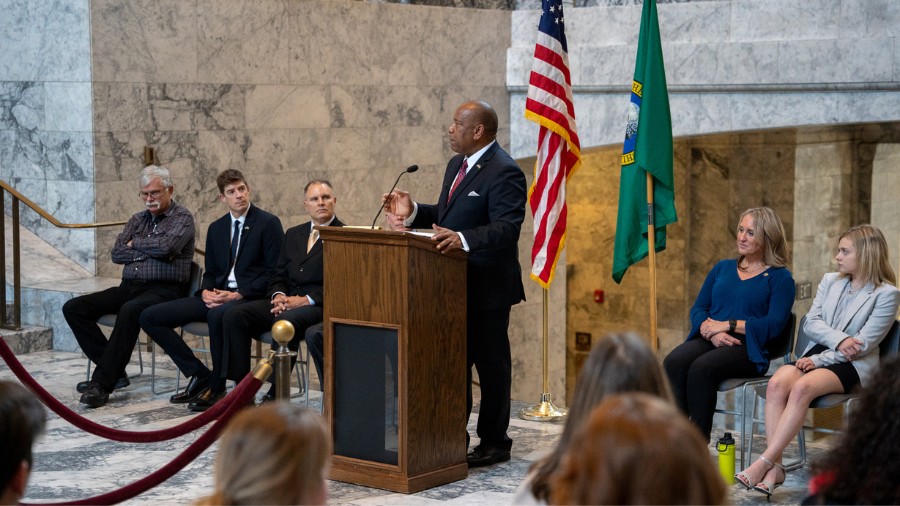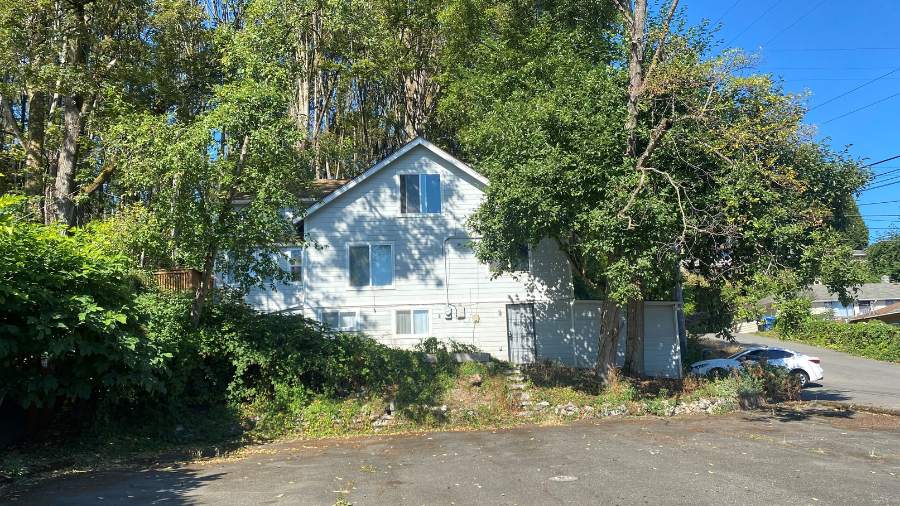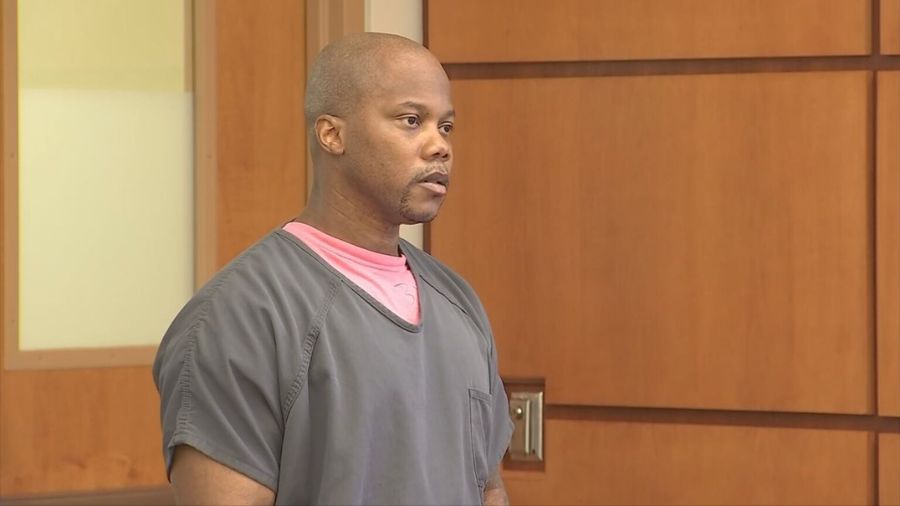As homelessness rises, Supreme Court takes Oregon case, to decide on sleeping bans
Apr 22, 2024, 10:28 AM | Updated: 5:30 pm

A woman gathers possessions to take before a homeless encampment was cleaned up in San Francisco August 29. (Photo: Jeff Chiu, AP file)
(Photo: Jeff Chiu, AP file)
The U.S. Supreme Court heard oral arguments Monday in a case out of Oregon that could have far-reaching consequences for how cities can regulate homeless people, and if homelessness can be considered a crime.
Early indications appeared to show a divided court in City of Grants Pass, Oregon v. Johnson, as the justices seek to answer whether local jurisdictions can ban people from sleeping outside when shelter space is lacking. The question at the center of the case is whether the laws in Grants Pass, a city of roughly 40,000 in southern Oregon, went too far. (A PDF from the U.S. Supreme Court on this case can be viewed here.)
More importantly, the court’s decision will clarify whether the laws in Grants Pass, and other cities like it, are a violation of the constitutional protections against cruel and unusual punishment.
“If the Supreme Court does rule in favor of Grants Pass, I think what we can expect is that cities across across the area will have the right to outlaw homelessness across the city,” said Prof. Sara Rankin, a professor at Seattle University and national expert on legal and policy issues relating to people experiencing homelessness.
The case is considered the most significant to come before the high court in decades on the issue, as record numbers of people are without a permanent place to live in the United States. There were an estimated 256,000 unsheltered people in the U.S. on a given night in 2023, according to a December report from the Department of Housing and Urban Development (HUD).
The state of Washington is no exception, ranking second in the country for most unhoused people per capita. The Grants Pass case presents major implications for cities in Washington who have taken steps to ban public camping, most notably the city of Burien.
Oregon case could decide if homelessness can be a crime
In 2013, the city of Grants Pass attempted to tackle a growing problem with encampments that sprung up as the cost of housing escalated. The city enacted ordinances that banned sleeping outdoors on public property or in city parks. Violations can include fines of up to several hundred dollars, and can escalate to jail time after repeat offenses.
The San Francisco-based 9th Circuit Court of Appeals found in 2018 that such bans violated the U.S. Constitution’s Eighth Amendment by punishing people for something they don’t have control over. The 9th Circuit oversees nine Western states, including California, which is home to about one-third of the nation’s homeless population.
A cross-section of Democratic and Republican officials contend that makes it difficult for them to manage encampments, which can have dangerous and unsanitary living conditions.
“When the 9th Circuit constitutionalized this area, it left cities with really no choice: either keep building enough shelter that may or may not be adequate or suitable to someone’s preferences or be forced to give up all of your public spaces. That is what’s happened,” Theane Evangelis, the lawyer representing the city, told the court.
But hundreds of advocacy groups argue that allowing cities to punish people who need a place to sleep will ultimately make the crisis worse.
“The city council president of Grants Pass went on the record, in a public statement, and said that the intent of the law was to drive homeless people out of Grants Pass,” said Rankin. “That’s the real concern here is, ‘Can cities make homelessness illegal city wide?’ It would effectively result in people being displaced to other cities, and then you can expect a downward spiral.”
Washington legislation regarding homelessness: Senate bill aims to prohibit use of hostile architecture preventing homeless camps
Cities can still regulate homelessness
While the Supreme Court’s decision in the Grants Pass case could have major impacts across the country, it does not strip cities of all authority to tackle challenges with homelessness.
“The Grants Pass case has nothing to do with whether cities have the right to sweep. It has nothing to do with whether cities can impose those reasonable time restrictions so that they could, for example, have people who can sleep in tents overnight, but then have to pack up their tents and leave in the morning,” said Rankin. “In fact, in Seattle, there are provisions in Seattle’s own administrative rules that say if an area is considered hazardous or a public health or public safety issue, they don’t even need to provide notice to folks before they’re swept.”
Nothing in the Supreme Court’s decision would change that. The only thing the court will decide in this case is whether cities have the right to have a citywide ban against sleeping in public, even when that same city has inadequate shelter.
During two hours of oral arguments, the justices seemed disturbed at having a federal court hand down decisions that will affect local governments.
Justice Elena Kagan and Chief Justice John Roberts both expressed those concerns to Deputy Solicitor General Edwin Kneedler, who argued on behalf of the Biden administration against the city of Grants Pass.
“Many people have mentioned this is a serious policy problem, and it’s a policy problem because the solution of course is to build shelter, to provide shelter for those who are otherwise harmless,” Roberts said during Monday’s proceedings. “But municipalities have competing priorities. What if there are lead pipes in the water? Do you build the homeless shelter or do you take care of the lead pipes? What if there isn’t enough fire protection? Which one do you prioritize?”
Kagan questioned how the high court could make a decision that would be effective for jurisdictions of all shapes and sizes, each with unique circumstances. “These are tough judgments and usually they’re the kind of judgments that we think of as municipal officials make them,” she said.
Justices question whether criminalizing homelessness is effective
Rankin says the approximately 600 homeless people in Grants Pass are now serving as a case study for why criminalizing homelessness will not work. “Unless your homelessness is cured somehow, the reality is that you’ll be hit with multiple fines and fees. They have thousands of dollars in fines and fees, just from not having a safe and legal place to sleep. Not only do those make it harder for you to emerge from homelessness, but can actually evolve into criminal charges.”
Some of the more conservative-leaning justices, including Brett Kavanaugh, questioned the effectiveness of that process on Monday.
“If you run through that cycle and end up in jail for 30 days, then you get out, you’re not going to be better off than you were before in finding a bed, if there aren’t beds available in the jurisdiction,” he told Evangelis.
Grants Pass does have limited shelter options, including the Christian nonprofit Grants Pass Gospel Rescue Mission. While some have embraced the resources provided there, others have criticized the organizations’ list of 29 rules, some of which have direct religious overtones. Beyond that, “there are zero overnight shelters that are accessible to anyone who wants them,” said Rankin.
Jason Rantz on SCOTUS taking the case: United States Supreme Court could save Seattle from homeless crisis
The same holds true for cities like Burien, which continues to have no overnight shelter space for single adults. While the city accepted an offer from King County last fall of $1 million and 35 pallet shelters, it has yet to decide on a location for them, despite months of discussion.
“We have multiple shelters for women and children. We certainly need to get investments for men’s shelters,” Burien Mayor Kevin Schilling told KIRO Newsradio at the time. “But the law only says in the vicinity, not in the city where someone is presently sleeping in a tent.”
Schilling said that could include places like Seattle, or other nearby cities in South King County. It’s become a major point of contention that now has Burien engaged in a legal battle with the King County Sheriff’s office (KCSO) over whether the city’s anti-camping ban can be legally enforced. The situation there bears marked similarities to the one now being argued before the nation’s highest court.
Justice Sonia Sotomayor asked, “If every city every village, every town lacks compassion and passes a law identical to this? Where are they supposed to sleep?”
The court is expected to decide the case by the end of June.
Contributing: The Associated Press













